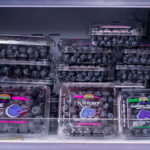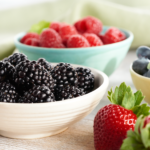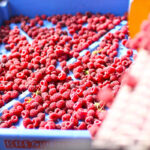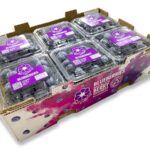Mississippi State University studies small crop potential in the state

The Mississippi State University Extension Service is currently providing research and support for the state's fruit industry. Its ongoing projects focus primarily on small crops, such as berries.
MSU researches blueberries at the South Mississippi Branch Experiment Station in Poplarville and the Beaumont Horticultural Unit, muscadines at Beaumont, and the McNeill Research Unit, and studies on blackberries, wine grapes, elderberries, passion fruit, and strawberries.
Estimates suggest Mississippi has approximately 800 acres of blueberries, 300 acres of blackberries, 300 acres of muscadines, and 100 acres of strawberries. This year's blueberry crop appears to be recovering better than in previous years, with the U.S. Department of Agriculture reporting on March 23, 2025, that 67% of the state's blueberry crop is in good condition and 4% is in excellent condition.
Eric Stafne, a fruit and nut specialist, said Mississippi's climate is conducive to fruit production thanks to a long growing season. He recommends careful site selection and choice of fruit varieties to ensure a continuous supply of fresh fruit.
Deep and well-drained soil with good fertility is essential for optimal fruit cultivation. Sandy loam or sandy clay loam soil is typically suitable for fruit crops, and proper drainage is critical, Stafne explained.
He further advised that air movement and sunlight are also key factors in site selection. Cold air tends to settle in low areas, potentially harming fruit buds and flowers. Consequently, avoiding frost pockets and windy areas is important, while south-facing slopes can promote early bud development but might expose plants to frost.
Sunlight access is crucial, with fruiting plants requiring at least 30% sunlight to yield quality fruit. Shadowed areas should be avoided, as reduced sunlight can negatively impact fruit production and increase disease susceptibility.
Those interested in fruit production should choose varieties known for consistent yields and performance in their region, Stafne recommended. Space for root development is vital for optimal growth, and a well-thought-out plan regarding the types and quantities of fruit to grow is recommended.
Selecting fruit based on the local climate is critical, as Mississippi exhibits significant climate variability. Additionally, different crops necessitate varying levels of management, so prospective growers should ensure they can provide the necessary labor for their chosen plants.













































